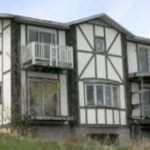Duluth’s Downtown Casino
As someone still fairly new to town, I’m not sure I understand the whole story behind the legalities of the Fond-du-Luth casino downtown.
Is it located on sovereign Indian territory or is the Fond du Lac band just the landlords? Why do we have such an eyesore that encourages anti-social behavior in our downtown at all? Isn’t there some way to make it go away entirely in favor of say, a museum, or a book store, or affordable housing, or a cafe?
[BTW — I come from a family of origin where the scourge of gambling wreaked havoc. Yeah, yeah, I know people can enjoy gambling and do it responsibly — but can’t we at least leave that out of downtown and off in Nevada or on reservations? (Of course, I don’t think it’s really healthy for reservations either, but if that’s a sovereignty issue I respect that.)]
Recommended Links:
Leave a Comment
Only registered members can post a comment , Login / Register Here














27 Comments
Vicarious
about 13 years agowildgoose
about 13 years agoRamos
about 13 years agoD-Pain
about 13 years agoRamos
about 13 years agoRamos
about 13 years agoRamos
about 13 years agohbh1
about 13 years agoDon Ness
about 13 years agospy1
about 13 years agoDavid
about 13 years agoJim
about 13 years agoLake Street Louie
about 13 years agoSam
about 13 years agowildgoose
about 13 years agoEP
about 13 years agohbh1
about 13 years agoRamos
about 13 years agoRose
about 13 years agoLarry
about 13 years agoRamos
about 13 years agoLarry
about 13 years agoRamos
about 13 years agozra
about 13 years agoMakoons
about 13 years agoRamos
about 13 years agoJim
about 13 years ago